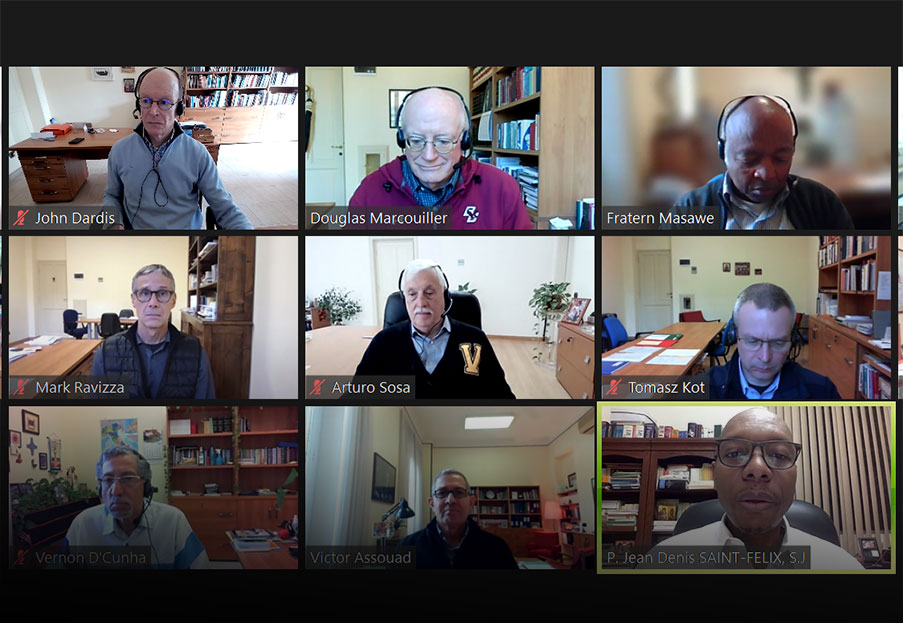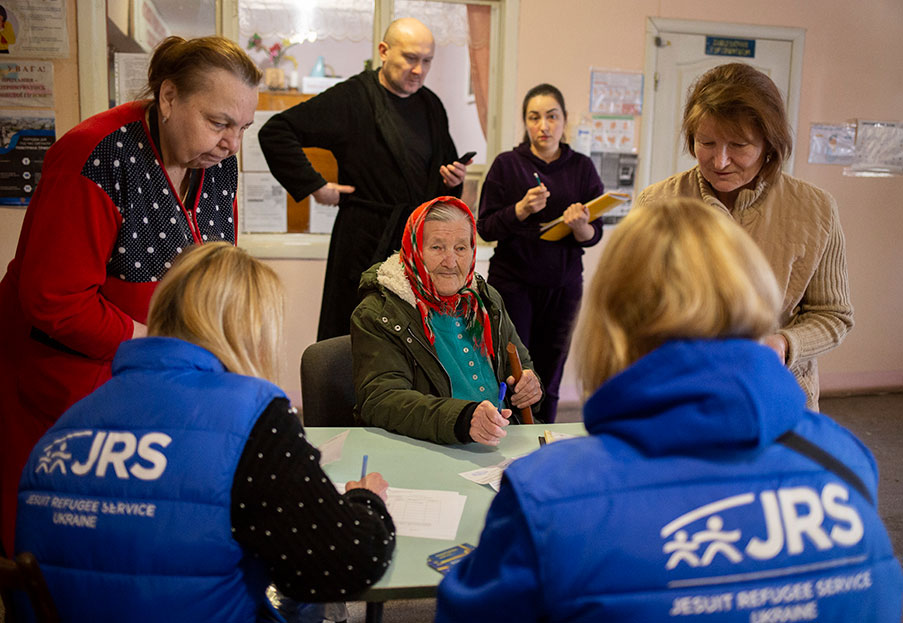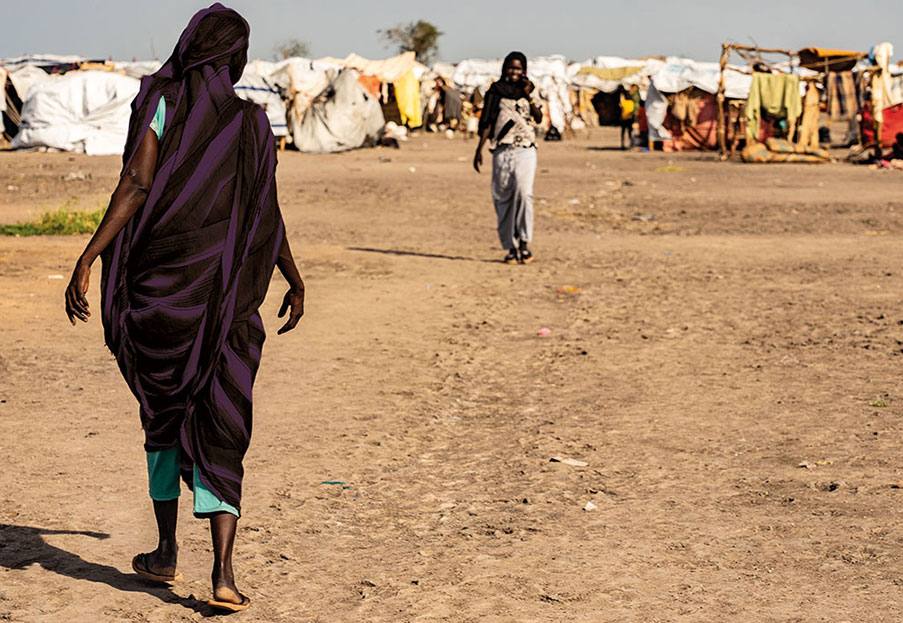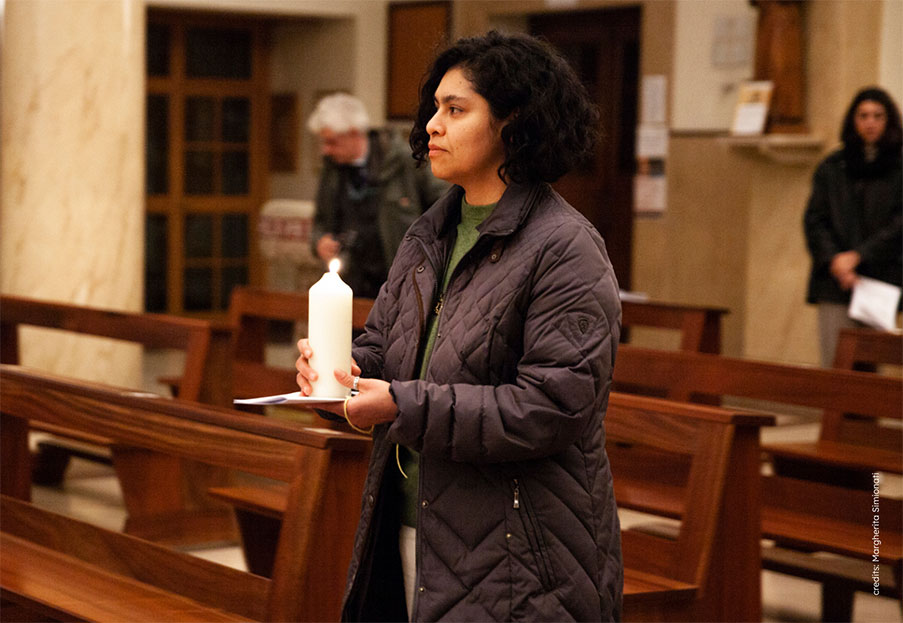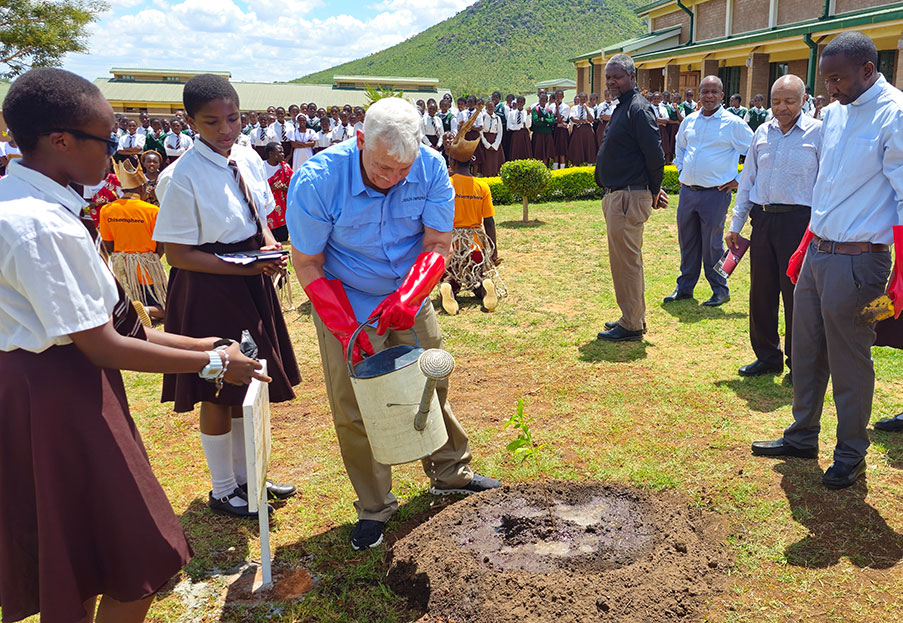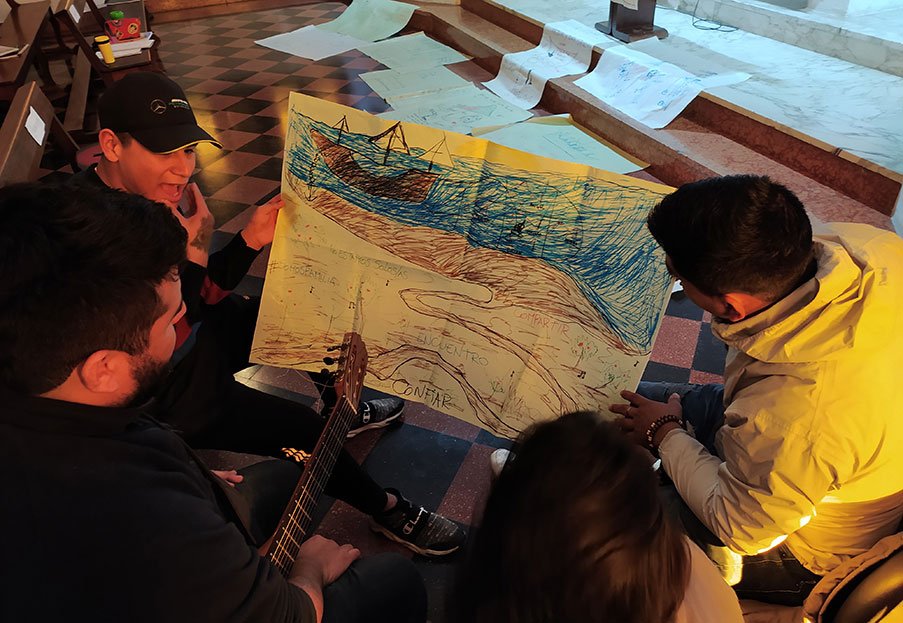“I emigrated to save my life!”
Janaina Santos - Jesuit Service to Migrants and
Refugees, Brazil - Province of Brazil
[From “Jesuits 2023 - The Society of
Jesus in the world”]
“Every Woman Counts” is a project run by the Jesuit Service to Migrants and Refugees, Brazil to integrate refugee women into the job market via training courses and professional qualifications.
Gisele Mpia, a 35-year-old refugee and survivor of gender-based violence, was forced to leave the Democratic Republic of Congo. Five years ago, she chose Brazil as her new home. One of hundreds of women to benefit from the help with socio-economic integration offered by the Servicio Jesuita a Migrantes y Refugiados (SJMR – Jesuit Service to Migrants and Refugees) in Brazil, Gisele now has her own beauty business and is an ambassador for the “Every Woman Counts” project.
“I was forced to emigrate from my country to
escape gender-based violence, but as a way of fighting back and being
resilient, I brought Congolese braiding techniques with me. When I reached
Brazil, I had no source of income but needed to eat and buy basic necessities.
So that’s when I started braiding, a hairstyle of African origin which has very
strong cultural resonance for black people. However, I had little idea how to
turn this skill into an income and neither did I have the materials with me to
start braiding. That’s when I came across SJMR Brazil. Through their help, I
learnt for the first time how to set up a business and about professional
registration, financial resources and various other things I’d never heard of
before. It was the start of a new chapter for me,” Gisele recalls.
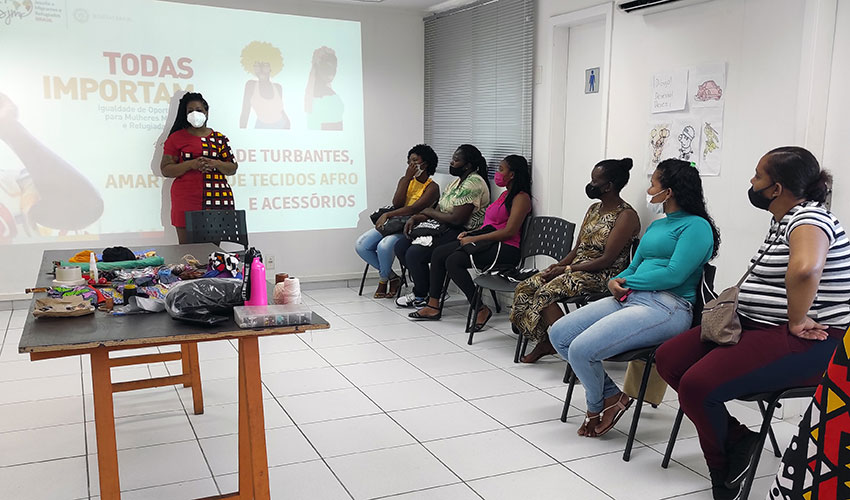
When dealing with forced migration, especially in the context of women, we need to refer to the whole mix of social indicators that affect them. On top of the socio-economic inequality so pervasive throughout Brazil, they face the challenge of being not just women, migrants and refugees but of being black women in particular. As well as facing cultural and linguistic barriers, they face the toughest call of all in the migrant context, since they are deeply afflicted by Brazil’s entrenched racism and machismo.
The Covid-19 pandemic has proven even more devastating for vulnerable population groups, aggravating further the situation of women migrants and refugees. Most survive in the informal job market, and many lost their means of subsistence. In the light of this precarious situation, SJMR Brazil is currently working on integrating these women into the job market by investing in free training courses and professional qualifications. But it also gives women incentives for business ventures, offering them support, as with the “Every Woman Counts” project, to develop their own businesses.
The goal is to strengthen initiatives in the gender, ethnicity and representation sectors and also to promote the structural changes needed in society. Ground-breaking initiatives, including business start-up kits and activities to support and strengthen enterprise culture among women also incentivise migrants keen to invest in their own business.
“The ‘Every Woman Counts’ project marks a
significant step in the empowerment, creation of networks for and visibility of
the lives of black women who seek to start a new life in Brazil. We are
rendered invisible. We suffer from racism and the difficulty of gaining entry
to the Brazilian job market. Initiatives like this are necessary milestones in
our life stories, which are already defined by various struggles and
transgressions because of the violence we experience,” observes Gisele Mpia.
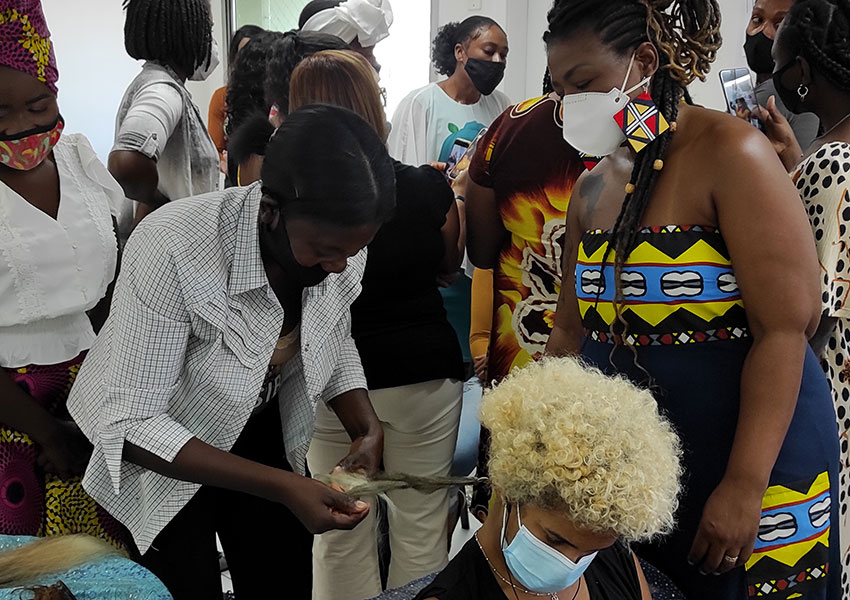
In 2022, 60 female black migrants and refugees of different nationalities benefited from the support of the “Every Woman Counts” project. The first project was held in Belo Horizonte in the state of Minas Gerais, and 40 women received vocational training. In the second phase of the project, 20 migrants received vocational training in Porto Alegre, the capital of Rio Grande do Sul.
“Through the support of SJMR Brazil, I had the chance to take courses in entrepreneurship, financial management, and marketing, among other things. I grew my network and today feel more confident about presenting my business. I also received financial support from SJMR. They invested in me and believed in my skills. My dream is to grow my business and open my own beauty salon. And, with SJMR by my side, no dream is impossible,” remarks Gisele.
Today, Gisele lives in Belo Horizonte and is working with Afro hairstyles and various styles of braiding. She is a craftswoman too, making accessories including earrings, necklaces, bracelets and t-shirts in vibrant colours made from African fabrics brought straight from the Congo.
As well as Belo Horizonte and Porto Alegre, SJMR
Brazil is also based in Boa Vista, in the state of Roraima, Florianópolis in
Santa Catarina, Manaos in Amazonas and Salvador in the state of Bahía. The
national office is in Brasilia in Distrito Federal. Thousands of people have
already benefited from SJMR’s free services via emergency interventions
involving social welfare, paperwork, legal aid, finding work, accessing
Portuguese language courses, professional training or psycho-social and
pastoral services. Today, the Service is a role model for the care for migrants
and refugees in Brazil and partners with government organisations, and national
and international non-governmental organisations.
